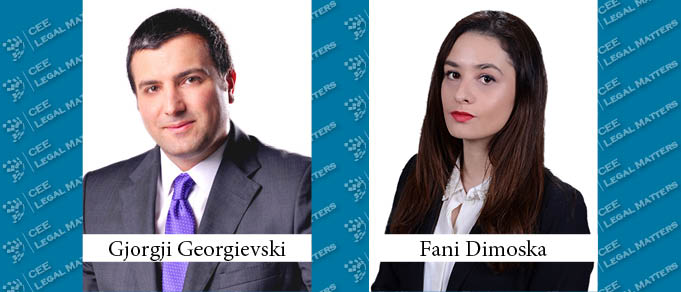Mining is significant for North Macedonia, a country with one of the longest mining histories in the Western Balkans and vast natural resources including iron ore, copper, zinc, gold, lead, and lignite. Hence, mining significantly contributes to the development of the Macedonian economy and, in particular, to the development of local governments. Specifically, a local government receives 78% of the fee paid for each concession on its territory. The regulatory framework governing mining is therefore critical for the sector’s future expansion and investment possibilities.
The mining regulations adopted back in 2012 aimed to boost new investments in mining and prioritized only the financial benefits of mining activities. The mining regulations introduced shorter, simpler, and faster procedures for granting mining permits and concessions. Furthermore, they provided easy conversion of the exploratory concession into an exploitation concession, providing an opportunity for investors to commence exploitation faster. Following the adoption of these mining regulations, the sector saw a substantial increase in the number of granted concessions and mining activities. However, the increased mining activities led to increased pollution in the regions where the mining activities began. The development of the industry caused chemical pollution of water and soil, and affected the biodiversity and the health of the local population.
Despite the clear financial benefits of facilitating the growth of the mining sector, the country is now faced with the challenge of striking a balance between financial interest and environmental protection.
In an attempt to strike a balance, in 2019, Macedonian lawmakers adopted significant amendments to the mining regulations to provide greater protection of the health of the population living near the mines and environmental protection. These amendments prohibit the granting of concessions for the exploitation of mineral raw materials through leaching procedures or flotation of metallic mineral raw materials with cyanide or sulfuric acid in open-pit mines. As an exception was provided for the already granted concessions, the amendments only apply to new open-pit mines.
The 2019 legislative amendments fueled the ongoing debate among environmental activists and the business community, triggering the Macedonian Government to reconsider its position on mining regulation. In July 2021, the Macedonian Government proposed new amendments to the mining regulations, which appear to be some sort of a compromise between the demands of environmental activists and the needs of the business community.
The most significant changes include the introduction of new circumstances under which the Macedonian Government will be entitled to unilaterally terminate a concession agreement. More precisely, the recent amendments stipulate that the concession may be terminated due to a material breach of the concession agreement and applicable regulations. The Macedonian Government will now have the opportunity to terminate the concession agreement if exploitation violates the public interest and when the concessionaire performs exploitation outside the territory to which the concession has been granted. However, in such a case, the concessionaire will be provided with an opportunity to apply for a new concession for exploitation at another site.
Concessionaires will be subject to a more thorough audit of their performance. The Macedonian Government will be entitled to terminate the concession agreement if the concessionaire exploits less than 20 percent of the projected amount of mineral raw material within one year. However, even in this case, the termination is conditional on providing an opportunity for the concessionaire to clarify the reduced exploitation. Moreover, the concession will not be terminated if the concessionaire provides an adequate explanation for the reason for the reduced exploitation. The explanation will be reviewed by a competent committee empowered to extend reduced exploitation for another consecutive year. The conditions under which the concessionaires operate will become stricter once the amendments are adopted.
The proposed amendments currently under review by the Macedonian Parliament are expected to bring some reconciliation of the stakeholders. It seems that the amendments tend to satisfy both representatives of the mining industry and environmental activists. However, it is all but certain that the debate will continue.
By Gjorgji Georgievski, Partner, and Fani Dimoska, Associate, ODI Law
This Article was originally published in Issue 8.11 of the CEE Legal Matters Magazine. If you would like to receive a hard copy of the magazine, you can subscribe here.




















